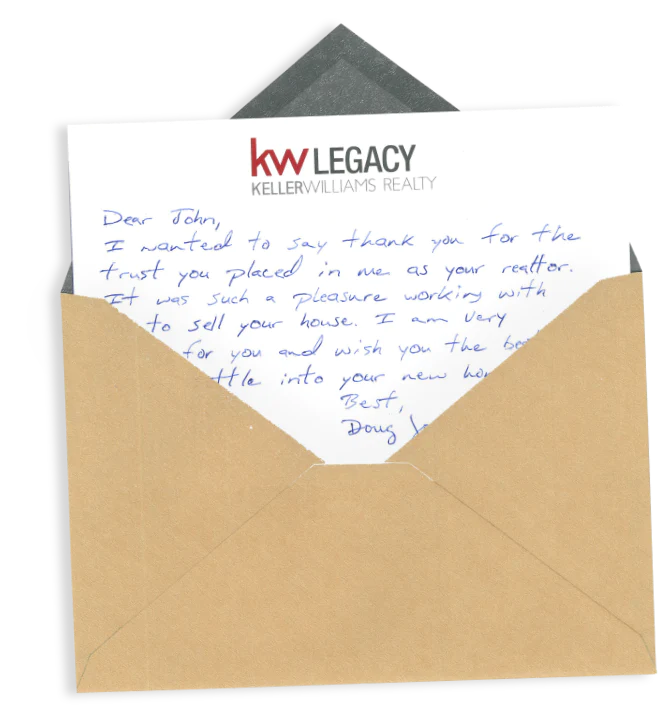Achieving Exceptional B2B Customer Experience: Expert Strategies & Tips

Achieving Exceptional B2B Customer Experience: Expert Strategies & Tips
In today’s competitive business landscape, providing an exceptional B2B customer experience (CX) has never been more critical. Gone are the days when B2B interactions were considered mundane and impersonal.
B2B customers expect the same level of seamless, personalized, and value-added experiences as B2C customers. But how can your business achieve this level of excellence in B2B customer experience? Read on to discover expert strategies and tips that will guide you through building a world-class B2B CX program.
Key Takeaways
- B2B customer experience is essential for promoting customer satisfaction, loyalty, and revenue growth.
- Companies should strive to develop an omnichannel strategy that aligns teams and departments to ensure consistency across touchpoints while providing personalized experiences.
- Measuring key B2B CX metrics helps organizations optimize processes, increase customer satisfaction and drive data-driven decisions for long-term success.
THE SIGNIFICANCE OF B2B CUSTOMER EXPERIENCE
Customer experience has become an essential part of the B2B realm, as it can provide companies with an edge competitive advantage over competitors and drive revenue growth. Clients now expect nothing less than favorable customer experiences based on their preferences and needs.
To ensure they receive this, businesses must focus on strategies such as omnichannel marketing that provides personalized human interactions and feedback loop closure to boost customer satisfaction, retention, and perception, resulting in overall business expansion for improved success.

UNDERSTANDING THE B2B BUYER PERSONA
To create tailored customer experiences, companies must first comprehend the B2B buyer persona. This includes recognizing that multiple stakeholders with contrasting desires and ambitions are involved in their interactions with businesses online (e.g., through emailing, live chats, or chatbots).
Offering streamlined products and a personal touch can give firms an edge over competitors in this domain of customers. Understanding what these customers need and providing them with adapted experiences will go far to meet their expectations more effectively than ever before!
Decision-makers and influencers
The B2B buying process involves a complex network of decision-makers and influencers requiring tailored approaches to meet their needs. Businesses in this sector need to understand how feedback from these customers can enhance the customer experience, lead to customer success, and ultimately build long-term relationships with them.
Strategies that have been found successful include adapting messaging based on audience type, setting measurable goals, and selecting reliable influencers. As well as nurturing meaningful connections between clientele & business stakeholders.
These efforts will assist organizations operating within the realm of B2B customers when it comes time to connect deeper through tangible results derived from appropriate communication tactics targeted toward decision-makers/influences specifically.
Diverse industries and verticals
A great appreciation and recognition by customers can be achieved through delivering personalized experiences. This requires B2B companies to gain a greater insight into customers. Recognize the various industries their customer base originates from, such as financial services, technology, manufacturing, construction, retail, and telecommunications.
To understand the precise wants of these customers, interact with these clients better. Businesses in this market sector must become familiar with them while offering customized support solutions that utilize advanced customer service tools combined with personalized content delivery methods, which help create strong bonds between both parties concerned.
By ensuring they cater specifically to each individual’s needs, businesses will succeed by ensuring customers recognize what value products or services are offered and building solid relationships at all times.

BUILDING A COMPREHENSIVE B2B CUSTOMER JOURNEY MAP
Customer journeys are essential for businesses to understand and optimize to deliver exceptional experiences. Mapping these B2B customer paths helps pinpoint key touchpoints that lead to higher satisfaction levels.
Gathering data-driven insights from customers is a great way to take corrective action, improve the overall CX experience, and quickly identify areas of pain points. By utilizing this customer feedback, loop companies can work on creating seamless transitions throughout all stages, resulting in an improved customer journey with satisfied customers at each step along their path.
ENHANCING B2B CX THROUGH DIGITAL TRANSFORMATION
Digital transformation has significantly improved B2B CX, with customers preferring digital channels, self-service solutions, and convenient experiences. Knowledge bases, chatbots, and discussion forums effectively supply quick answers to customer inquiries without waiting for service teams' responses.
To improve these services, AI technology can replicate natural conversations for personalization while enabling machine learning tools that analyze client data, offering tailored recommendations and support options that guarantee efficiency when servicing clients. Automation makes tedious tasks more efficient, ensuring streamlined processes to provide a seamless experience across all endpoints throughout the customer journey.
KEY ELEMENTS OF AN EFFECTIVE B2B CX STRATEGY
A successful CX strategy for B2B must include consistency, personalization, and proactive service to exceed what customers expect of the brand. This customer-centric approach is paramount in fostering loyalty while also generating income growth through improved satisfaction levels.

Consistency across channels
To develop strong relationships with B2B customers, consistency is critical. Having a unified approach across multiple channels creates an uninterrupted experience when engaging in the buying process and helps reduce any difficulties that may arise.
Creating an omnichannel strategy where all teams work towards one shared objective can help form a customer-centric culture that aims to provide smooth interactions throughout their entire journey as consumers of your services or products. This cooperation between departments strengthens trust and loyalty from clients on both sides of the relationship – delivering high levels of satisfaction for them and success for you, too!
Personalization and customization
Customers are the primary focus of any successful B2B enterprise, so personalizing and customizing their experience is critical to providing differentiated value. Companies can deploy customer data strategically in marketing strategies, which allows for content and communication that caters to individual customers. Thereby optimizing buying experiences according to particular needs.
The advantages of this heightened CX approach include greater loyalty due to better satisfaction and customer churn levels, increased sales via conversions, an enhanced overall customer journey, and a more profound comprehension of what it takes to fulfill each unique need. Enhanced engagement with clients naturally follows from here, too.
Proactive support and communication
Providing timely support and communication is essential in guaranteeing customer satisfaction and enhancing customer loyalty. Businesses can effectively tackle issues quickly when they take a proactive approach, thereby decreasing the rate of customers leaving.
A prime example would be Bell Canada, with its successful initiatives on preventative aid to ensure greater customer contentment. Emphasizing that proactivity during CX strategies will foster success while increasing client joy. Striving towards prioritizing ongoing relations between the company and clients yields unparalleled rewards for both parties involved, making it an invaluable pursuit overall!

MEASURING AND IMPROVING B2B CX METRICS
Enhancing B2B CX requires monitoring and improving metrics such as NPS and customer health scores. By tracking these figures, businesses can identify patterns, notice trends, and better customer experience.
Data-driven decisions that align with the organization’s objectives and those focused on delivering personalized services are essential to achieving higher levels of consumer satisfaction, which translates into customer retention rate, increased loyalty, and profit growth.
REAL-LIFE SUCCESS STORIES: B2B CX CHAMPIONS
Businesses can replicate the successes of B2B CX leaders such as Coca-Cola HBC and Johnson Controls by studying their approaches. For instance, to collect customer feedback and build collaboration between different departments, Coke HBC created a customer experience map. At the same time, Johnson Controls utilized the Qualtrics XM platform for data collection and visually tracking each touchpoint on a customer journey.
These case studies exemplify how the strategic execution of an effective CX strategy allows companies to reach greater heights - increased customer satisfaction levels, loyalty towards them, and financial revenue growth all at once! By utilizing these lessons from industry champions, you too can reap similar rewards with your business initiatives involving CX program implementation.
OVERCOMING COMMON B2B CX CHALLENGES
For businesses looking to provide exceptional customer experiences and experience long-term success, tackling standard B2B CX challenges such as internal misalignment, siloed data, and slow digital transformation is essential.
To achieve this end goal effectively, companies need to implement effective strategies like working backward with the objective at the heart of all decisions made, leading with a clear direction, and concentrating on high-value metrics & outcomes that customers will appreciate. Digital tools should be embraced alongside automation technology leveraging insightful data analysis, which can Optimize their B2B Customer Experience (CX) journey while driving growth simultaneously.

summary
B2B companies must master customer experience to generate loyalty, satisfaction, and revenue. To excel at this, businesses must grasp the buyer persona, construct an exhaustive journey map for customers, embrace digital change, and develop a well-thought-out CX plan containing continuity across different platforms and personalization components as proactive support measures.
With great examples of how it can be done right, plus know-how on common challenges found with CX practices related to business–to–business situations, your organization will soon become one top-tier player within the swiftly advancing experience economy sphere.
Frequently ASked Questions
What is B2B customer experience?
B2B customer experience is a holistic combination of every contact between your brand and the customers, individual persons, or teams. The primary goal is to ensure quick responsiveness along with compassionate responses. Address queries, support troubleshooting, and grant access to resources for assistance.
What makes for a great B2B customer experience?
It is essential to comprehend each customer's particular demands, customer expectations, and anxieties to craft a superb B2B customer experience. Leveraging data, making yourself competitively distinct, smoothening out any inconveniences faced by customers for consistent experiences, being pertinent with buyers at every stage their journey requires - transparency included. These are all required components to create an optimal buyer/customer relationship.
What is the difference between B2B and B2C customer experience?
Regarding customer experience, B2B businesses need to target different audiences than those of a B2C organization. The former must focus on the experiences companies, teams, and employees have with their brands, while the latter should prioritize individual customers’ satisfaction. This requires distinct approaches from each type of business for them both to maximize practical positive customer experience.
What is an example of a B2B customer?
A B2B customer is a business that utilizes other businesses’ offerings, such as parts or services. For instance, a company producing car components could sell them to a wholesale clientele. Likewise, various organizations utilize the products and software of other corporations for their raw material needs.
What is the importance of understanding the B2B buyer persona?
It is essential to comprehend the B2B customer profile to design customized experiences that meet the expectations of multiple parties, all with distinct wants and objectives. Creating these tailored encounters for customers makes it possible to satisfy everyone involved.























